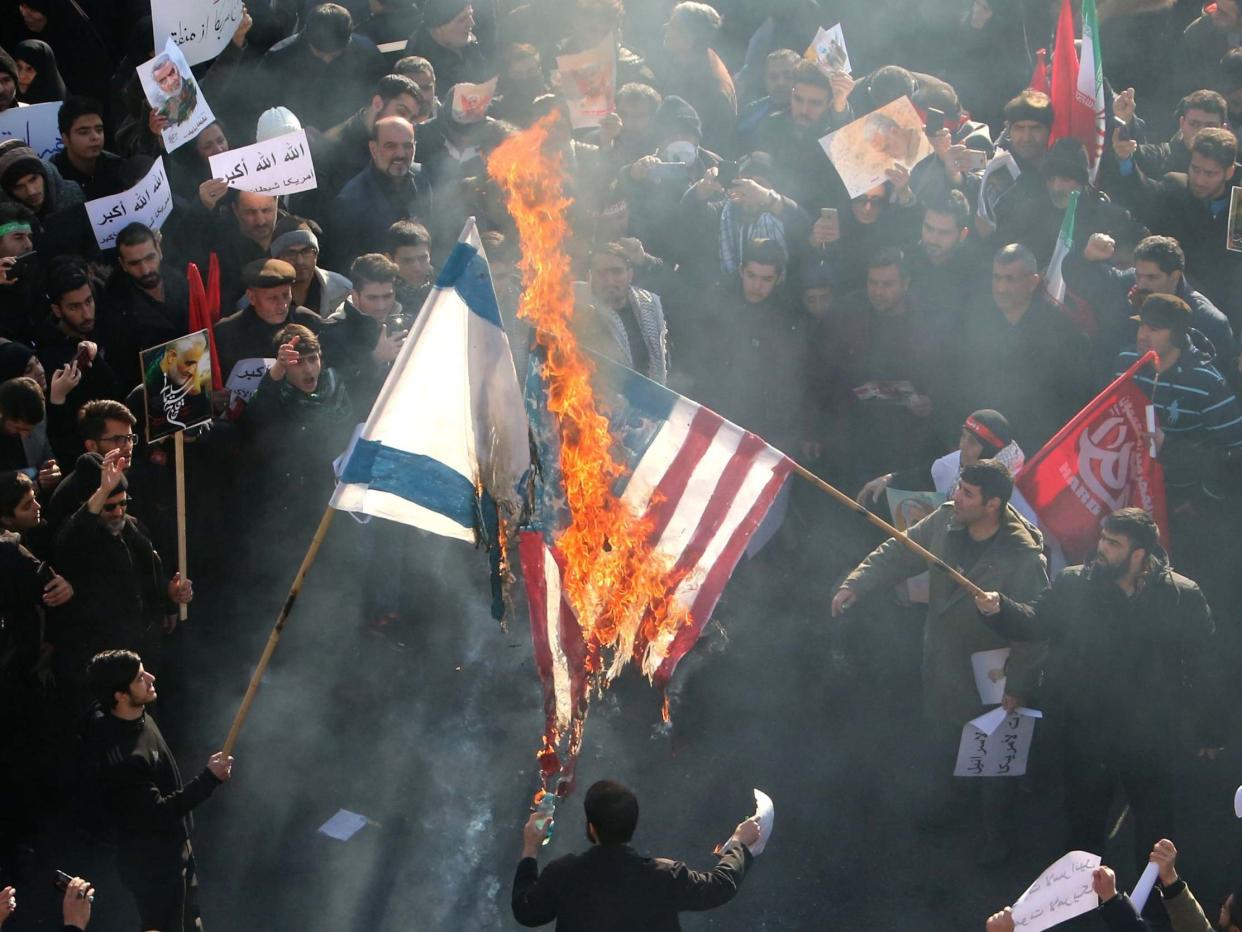Trump’s threatened destruction of Iranian cultural sites would be war crime, experts say

Donald Trump’s threat to destroy Iranian cultural sites would be a war crime if carried out, legal experts have claimed, as the US president doubled down on his comments over the weekend.
In the aftermath of the US killing of top Iranian general Qassem Soleimani in Iraq last week, Mr Trump warned Iran that a list of targets had been drawn up should it retaliate, including cultural sites with no military value.
“Let this serve as a WARNING that if Iran strikes any Americans, or American assets, we have.... targeted 52 Iranian sites (representing the 52 American hostages taken by Iran many years ago), some at a very high level & important to Iran & the Iranian culture, and those targets, and Iran itself, WILL BE HIT VERY FAST AND VERY HARD,” he wrote on Twitter.
International law prohibits deliberate attacks on civilian objects not being used for military purposes. Experts in international law said the attacks, if carried out, would constitute war crimes.
“President Trump should publicly reverse his threats against Iran’s cultural property and make clear that he will not authorise nor order war crimes,” said Andrea Prasow, acting Washington director at Human Rights Watch.
Ms Prasow added that the threat demonstrated the president’s “callous disregard for the global rule of law”.
“The US Defence Department should publicly reaffirm its commitment to abide by the laws of war and comply only with lawful military orders,” she said.
Iran has vowed to retaliate for the death of Soleimani, the leader of Iran’s Quds Force, who was killed in a US drone strike at Baghdad airport last Friday. Mr Trump ordered the strike against Soleimani following weeks of tensions between the US military and Iran-backed militias in Iraq.
The killing, and the president’s subsequent threats, have provoked a flood of criticism at home and abroad.
Boris Johnson issued a rare criticism of the UK’s transatlantic ally on Monday.
“There are international conventions in place that prevent the destruction of cultural heritage,” the prime minister’s spokesperson said.
“You are threatening to commit war crimes,” said Senator Elizabeth Warren, a frontrunner in the Democratic party’s list of candidates hoping to challenge Mr Trump in November’s election.
Unesco director general Audrey Azoulay said the US had signed a 1972 convention that obliged it not to undertake "any deliberate measures which might damage directly or indirectly the cultural and natural heritage" of other states.
Rhys Davies, an international criminal law barrister, told The Independent that the kind of military action described in Mr Trump’s tweets “could certainly be a war crime”, but that any kind of prosecution might be difficult.
“Even though the US is not a signatory of the International Criminal Court, there is a domestic framework where someone could be brought to justice in the US. But that probably enters the realm of the political.
As the leader of Iran’s Quds Force, 62-year-old Soleimani was the architect of Iran’s expanding influence across the Middle East. He travelled the region in his dual roles of diplomat and military commander to build and support a “resistance bloc” – an alliance of Shia militant groups that would facilitate Iran’s regional ambitions and counter US influence.
The proxy groups he built and supported killed hundreds of US troops during the Iraq War.
Read more
Trump threatens to sanction Iraq if US troops expelled
raised the prospect of using disproportionate force
Pelosi announces war powers resolution vote to limit Trump action on I
The Iran crisis should be solved with words not weapons
Iran’s Quds Force will not fall apart after Soleimani’s killing
Iran abandons nuclear deal commitments after US killing of Soleimani

